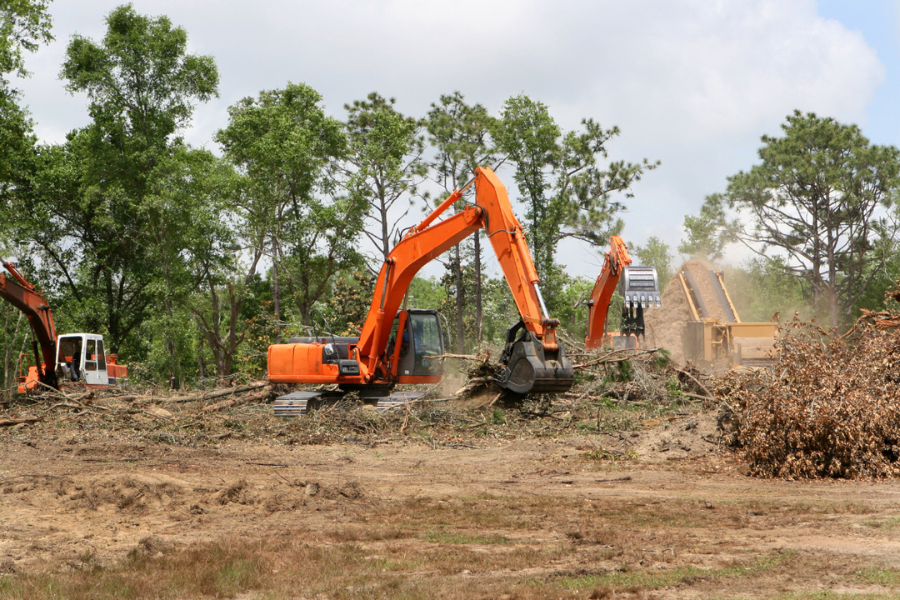Georgia, a state rich in history and natural beauty, is land clearing companies in georgiaxperiencing rapid growth and development. As new residential areas, commercial spaces, and infrastructure projects emerge, land-clearing companies’ role becomes vital and indispensable. These agencies are the pioneers in transforming landscapes, ensuring that the groundwork for development is executed efficiently and sustainably.
This article delves into the pivotal role of land clearing companies in georgia in shaping the future of development, underlining their profound impact on the state’s progress and environmental stewardship.
1. Expertise in Comprehensive Land Assessment
Georgia’s land clearing agencies commence each project with a meticulous land assessment, demonstrating their expertise and commitment to understanding the specific needs and challenges of the site. This comprehensive process involves evaluating the terrain, soil composition, vegetation, and potential environmental impacts. By conducting such detailed assessments, these companies can create modified clearing plans that address the unique characteristics of each site. This expertise instills confidence that land clearing is done efficiently and responsibly, laying a solid foundation for future development projects.
2. Sustainable Clearing Practices
Sustainability is a crucial priority for land-clearing organizations in Georgia. They employ various techniques to minimize environmental impact, such as selective clearing and preserving significant trees and natural features. By avoiding clear-cutting and focusing on keeping the ecological balance, these companies help maintain biodiversity and protect wildlife habitats. Additionally, they often use advanced machinery designed to reduce soil disturbance and prevent erosion, contributing to the land’s long-term health.
3. Efficient Debris Management
Managing the debris generated from land clearing is a critical aspect of the process. Georgia’s land-clearing companies excel in debris management by recycling and repurposing materials whenever possible. Trees and vegetation can be converted into mulch, compost, or biomass for energy production, reducing waste and promoting sustainability. Efficient debris management clears the site for development and supports eco-friendly practices that benefit the environment.
4. Erosion Control and Soil Preservation
Erosion control is essential in Georgia, where heavy rains can quickly lead to soil erosion and degradation. Land clearing organizations implement erosion control measures such as silt fences, sediment basins, and retaining walls to protect the soil. These measures prevent soil loss and maintain soil health, which is crucial for the stability of future construction projects. By prioritizing soil preservation, these companies ensure that the cleared land remains fertile and suitable for development.
5. Utility Installation and Infrastructure Preparation
Beyond clearing the land, these organizations play a crucial role in preparing sites for infrastructure and utility installation. This includes laying down water lines, sewage systems, and electrical conduits necessary for modern development. Integrating utility installation into the land-clearing process allows these companies to streamline development projects, reducing delays and ensuring that sites are fully prepared for construction. This comprehensive approach enhances the efficiency and success of new developments in Georgia.
6. Regulatory Compliance and Safety Standards
Adhering to regulatory compliance and safety standards is a cornerstone of land clearing companies in georgia. Companies must handle a complex web of local, state, and federal regulations to ensure their activities are legal and environmentally responsible. These businesses protect their workers and the community by maintaining high safety standards and following best practices. Their commitment to regulatory compliance also helps prevent legal issues and promotes public trust in the development process.
Georgia’s land-clearing companies are pivotal in shaping the future of the state’s development. Through comprehensive land assessments, sustainable practices, efficient debris management, erosion control, utility installation, and strict adherence to regulations, these agencies ensure that development is both effective and environmentally responsible. As Georgia continues to grow, the expertise and dedication of its land-clearing organizations will play an essential role in creating a sustainable and prosperous future for all residents.
Don’t miss the latest news and updates visit: My Stories List!
